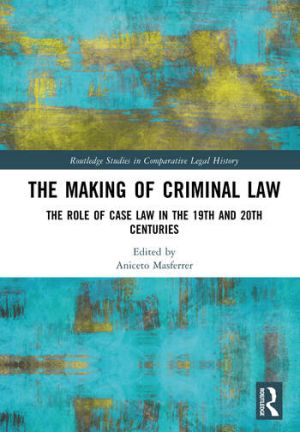
The separation of powers produced by the Enlightenment period reinforced the myth of the “perfection of the law”, with criminal law being dependent on the principle of legality. Demonstrating that this principle has not fundamentally altered judges' methods of interpretation and decision-making, this collective volume explores the role of case law in the making of modern criminal law from the late 19th century to the end of the 20th century. It enables us to gauge the influence of case law developed and to assess the extent to which it contributed to major criminal law decisions and the emergence of model criminal codes.
The book takes a comparative view across various European and American jurisdictions and offers an overview of European civil law traditions along with comparisons from the Americas. The focus is on Western legal historiography, which has hitherto been notably under-researched. The chronological point of departure is marked by the creation of the Supreme Court and the cassation in each jurisdiction. Each chapter contains a short introduction to the role of jurisprudence in the making of criminal law from the 19th century onwards in that jurisdiction, followed by an exploration of the contribution of the legal doctrine of the Supreme Court in the making or development of a particular criminal offence or institution.
The book will be of interest to scholars and historians working or teaching in the areas of legal history, comparative legal history, criminal law and comparative law. It will also be of use to scholars interested in the study of law in different socio-cultural contexts.